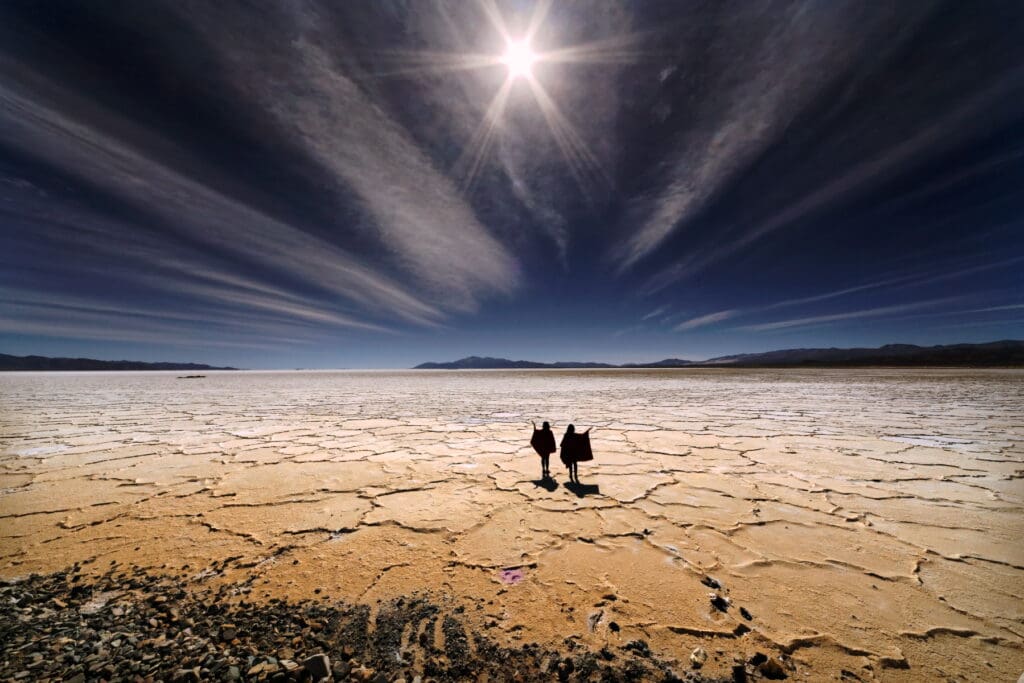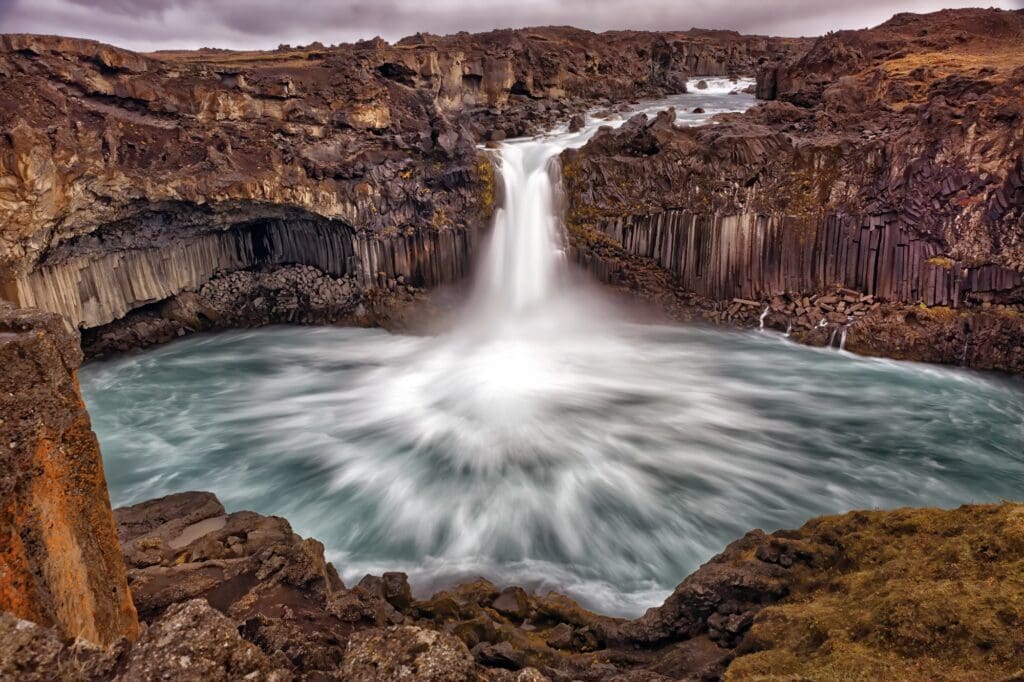
Even the best-intentioned efforts to stem the climate crisis often fail to address root causes; namely, our disconnection from one another and the earth.
Could solutions to this and other climate-related challenges lie within the human mind? More than 900 scholars, scientists, contemplatives, students, and activists from 30+ countries convened online for Mind & Life’s Summer Research Institute (SRI) and Speaker Series on June 6-11 to find out. The live event, “The Mind, the Human-Earth Connection, and the Climate Crisis,” explored key drivers of today’s dominant narrative of separation, while revealing pathways to connection.
Through the careful braiding of diverse disciplines—Buddhist wisdom, Indigenous knowledge, history, biology, philosophy, sociology, and psychology—participants gained new insights into the harsh realities of a warming planet, and skills for building resilience and agency. They learned about the science of behavior change and actions we can all take to nurture our relationship with the more-than-human world.
“The current climate change crisis is not just caused by increased concentrations of greenhouse gases… but by breakdowns in kinship relationships,” said Indigenous scholar Kyle Whyte, pointing to the moral bond between people, plants, animals, and habitats.
“The current climate change crisis is not just caused by increased concentrations of greenhouse gases… but by breakdowns in kinship relationships.”
—Kyle Whyte
Present-day efforts to mitigate climate change are rooted in a linear notion of time, he added, which fails to reconcile the damage wrought by colonialism, racialized capitalism, and other forms of power and oppression. By contrast, indigenous conceptions of time take the long view in identifying historic patterns of ecological collapse, and the relationships that must be renewed to restore equilibrium.
His sentiments were powerfully illustrated by youth activist Lyla June, who described indigenous land management practices that have long honored the relationship between humans and the earth. “My elders always told me to see all people and all living beings as my kin,” she said.
The need for a more holistic reframing of the climate crisis was echoed by Christine Wamsler, an internationally-renowned expert in sustainable development. “We need to stop looking at climate change as an external problem and more of a human relationship crisis,” she said. “What’s needed is a change in consciousness and a rewriting of the story that says that “some humans are superior to others and superior to the natural world.” Christine advocated for an integral approach that works at multiple levels: consciousness, behavior, culture, and systems.
Coping with Grief; Building Resilience
Contemplative teachers, scientists, and scholars offered practices and insights for healing our relationship with nature and strengthening climate resilience. Daily meditations and mindful movement sessions focused on the body as a sanctuary in difficult times, and how to restore a sense of calm and meaning amidst adversity.
“Contemplative practice opens the way to different ways of knowing,” said meditation teacher Willa Blythe Baker, whether we focus our attention on the breeze, sunlight, or the animals around us. For Christian scholar Fred Bahnson, author of Soil and Sacrament, such practices offer a window into non-dual consciousness, and the ability to see ourselves as part of the “whole rather than something separate from it.”
Through daily contemplative practices and two half-day retreats, participants learned by doing. “We can work on the future by being very much in the present,” said Buddhist meditation teacher Kaira Jewel Lingo, who guided attendees in connecting to nature, whether just outside their window or through remembered experiences. For mindful movement teacher Kelley Nicole Palmer, being in service to the planet begins with being in right relation with ourselves and recognizing that “you are a human being, not a human doing.”
“We can work on the future by being very much in the present.”
-Kaira Jewel Lingo
Tai chi and qigong teacher Peter Wayne shared practices rooted in ecological principles and biological systems. “Move like water, flow like a river,” he instructed, Alternatively, he encouraged attendees to feel their connection to the earth, much like a tree. “The more connected [we are] to the earth, the more we feel grounded and stable,” he said.

Beyond empowering their virtual audience to find refuge within, presenters stressed the importance of connecting to the places where they live. “Taking places and their stories seriously is fundamental to planetary healing,” said Bobbi Patterson, author of Building Resilience Through Contemplative Practice. It’s important to research and remember the places where you were born and live today, she urged. The richness of places invites us to be aware of painful histories of injustice and the natural phenomena that surrounds us.
From Awareness to Action
Speakers underscored the historical roots of our disconnection from nature and the moral imperative of taking action. Reliance on fossil fuels, factory farming, and other unsustainable practices have contributed to “ecological apartheid,” said eco-feminist Vandana Shiva. Healing lies in remembering that “we are part of the earth, and she is our mother.” The physicist and environmental activist called for a new ethic of earth democracy rooted in our profound interconnection and the rights of all living beings.
Buddhist teacher Roshi Joan Halifax also spoke to the moral and spiritual dimensions of the climate crisis and the need to train the mind to become more conscious of where we place our attention, our drives, and behaviors. “Everything in this society is about colonizing our attention,” she said, adding, “we need to decolonize around consumerism.”
“Everything in this society is about colonizing our attention. We need to decolonize around consumerism.”
-Roshi Joan Halifax
Following a special screening from the film series, Climate Emergency: Feedback Loops, Mind & Life Board Chair Thupten Jinpa also reinforced the ethical imperative of taking action, in part, because it makes us feel better. “Humans are meaning-seeking creatures,” he said. “When we find meaning in our work [and lives], therein lies the source of joy and deep fulfillment.”
Despite the moral and scientific case for climate action, not enough people are engaging in the political advocacy that could lead to much-needed change—at scale. Ed Maibach, Director of the George Mason University Center for Climate Change Communication, shared that while the number of Americans who are alarmed about climate change has doubled in the last five years, relatively few are engaging in political advocacy. What’s lacking is public will, he said. To spur action, people need to be made aware of how climate shifts are impacting their local community, the existence of positive solutions, and the power of collective efficacy.
To jumpstart swift, scalable, and sustained action, we need to think in terms of quantum social change, said climate adaptation researcher Karen O’Brien. Such change involves a nonlinear process in which people are motivated by universal values like equity, dignity, and compassion, and are moved to influence those closest to them—unleashing an expanding circle of care—or what she calls, “a social contagion of emotion and influence.”
Health psychologist Elissa Epel emphasized the importance of embracing a systems thinking perspective while working locally. “Any relationships we build, particularly with people of influence… are creating a new non-local system of change,” she said. When it comes to scaling behavior change, Elissa offered the example of a study she conducted at the University of California, San Francisco in which sugar-sweetened beverages were banned across the institution and a sample of employees were asked to identify their values and priorities when it came to health and the impact of sugar consumption. The result? They were more motivated to reduce their sugar intake. The sales ban had the added benefit of reducing greenhouse gas emissions on campus by 2 percent. The sugar ban has since been adopted by over a hundred hospitals nationwide.
Another powerful lever for change can be found in the role of faith leaders globally. Dekila Chungyalpa, Co-founder and Director of the Loka Initiative, shared how it supports faith and indigenous leaders in galvanizing their communities around climate action and building resilience. Relationship-building starts with finding common ground rooted in shared values, said Dekila. In working with evangelical leaders around climate issues, for example, Loka found one of the best ways to kickstart meaningful conversations was through reinforcing the historic role of churches in disaster relief and recovery, and steps church leaders could take to both prevent disasters and protect communities in the future.
“The most important thing about building bridges is to remember the Earth is a closed system,” said Dekila. Whether we agree with someone or not, the reality is we don’t get to walk away. “We are all interdependent.”

In his closing remarks, Buddhist monk Matthieu Ricard stressed the implicit rewards of adopting a planet-friendly worldview and lifestyle, encouraging participants to simplify their thoughts, words, and actions, and to find inspiration in the raw beauty of nature. “Wonder increases altruism,” he said, adding that shifting one’s focus from the self to responsibility to others and the earth offers a powerful pathway to connection and belonging.
“Wonder increases altruism.”
-Matthieu Ricard
At the end of their six-day journey, SRI participants shared climate actions they’re poised to take in their own lives and communities—from applying new insights to address food insecurity to integrating a sustainability lens into their research to weaving contemplative practices into classroom teaching. Wrote one scholarship recipient from Australia, “I am inspired having connected deeply with extraordinary people from around the globe. I don’t feel so alone doing the work we do.”
To expand learning opportunities through SRI 2021 and the Online Speaker Series, Mind & Life is pleased to offer free access to recorded presentations by Christiana Figueres, Roshi Joan Halifax, and Vandana Shiva. A new course is also in development featuring curated content from the event, discussion questions, and resources. This course is set to open by fall 2021. Subscribe to our e-newsletter to be notified of the launch.
****
The Mind & Life Institute expresses our deepest gratitude to the Hershey Family Foundation for its generous support of SRI since the program’s inception—this year providing a record number of scholarships to participants.

